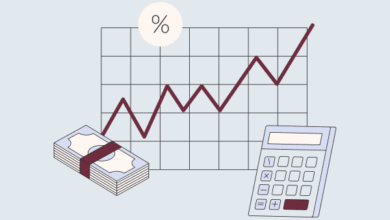Shorter rest periods yield same results when measuring blood pressure
[ad_1]
Research Highlights:
- Current guidelines recommending five minutes of rest before a patient can receive a blood pressure screening may not be necessary for patients without high blood pressure.
- Average differences in blood pressure measurements obtained after zero or two minutes of rest were not significantly different (<+2 mm Hg) than readings obtained after five minutes of rest in people with systolic blood pressure <140 mm Hg.
- These findings illustrate the possibility for improvement in blood pressure screening efficiency, especially in busy health care settings.
Embargoed until 9 a.m. CT/10 a.m. ET Thursday, Sept. 10, 2020
(NewMediaWire) – September 10, 2020 – DALLAS – The rest time needed before an accurate blood pressure measurement may be shorter than previously believed, according to new research to be presented Sept. 10-13, 2020, at the virtual American Heart Association’s Hypertension 2020 Scientific Sessions. The meeting is a premier global exchange for clinical and basic researchers focusing on recent advances in hypertension research.
 Researchers found no substantial difference in the average systolic blood pressure of participants when comparing zero, two or five minutes of rest before screening. The results could help improve the overall efficiency of blood pressure assessments in busy clinical settings.
Researchers found no substantial difference in the average systolic blood pressure of participants when comparing zero, two or five minutes of rest before screening. The results could help improve the overall efficiency of blood pressure assessments in busy clinical settings.
The current American Heart Association/American College of Cardiology Guideline for the Prevention, Detection, Evaluation, and Management of High Blood Pressure in Adults recommends five minutes of rest before a blood pressure test. A presentation titled, “Results from a Randomized Trial of Different Rest Times Before Initiating Blood Pressure Measurements,” examines whether a five-minute standard rest period before a blood pressure measure is scientifically necessary to produce an accurate reading.
“Based on results from other published studies, we were expecting to see a significant difference in average blood pressure measurements and overall readings. Instead, we discovered only marginal changes with shorter rest periods, which could help clinics obtain accurate screening measurements in a timely manner,” says the study’s lead author Tammy McLoughlin Brady, M.D., Ph.D., medical director of the Johns Hopkins Pediatric Hypertension Program and an associate professor of pediatrics at the Johns Hopkins University School of Medicine in Baltimore, Maryland.
Participants in the trial included 113 adults, ages 18 to 80, who underwent blood pressure measurement in a simulated clinical setting. Participants received four sets of three blood pressure measurements that were taken after three different rest times. Researchers randomized all to the order of rest periods (0, 2 and 5 minutes) prior to the first three blood pressure tests. All participants had blood pressure measured after a second five-minute rest period as their last measurement to estimate repeatability.
Researchers then compared the difference in average blood pressure taken after the first and second five-minute rest period, with the difference in average blood pressure between the first five-minute rest period and the two-minute rest period. They repeated these calculations for the first five-minute period and the zero-minute rest period. Participants with both normal and high blood pressure were tested.
Results from the analysis found:
- Overall, there were no more than a ±2 mm Hg difference in the average difference between blood pressure obtained at the five-minute resting periods, compared to less than a minute and two minutes for those with a systolic measure <140 mm Hg.
- Blood pressure values were significantly different (greater than ±2 mm Hg) with shorter rest periods for patients with higher blood pressures.
“Economics play a significant role in blood pressure screenings, as clinics not as well-funded may find it especially challenging to implement a uniform, five-minute rest period before testing, which could ultimately reduce the number of patients able to be screened,” Brady said. “While our study sample was small, a reasonable approach based on these findings would be to measure blood pressure after minimal-to-no rest, and then repeat the measurements after five minutes only if a patient is found to have elevated blood pressure.”
In this study, an elevated blood pressure was defined as a blood pressure reading ≥140/90 mm Hg. According to the current American Heart Association/American College of Cardiology Guideline for the Prevention, Detection, Evaluation, and Management of High Blood Pressure in Adults, hypertension should be defined as ≥130/80 mm Hg.
Co-authors are Junichi Ishigami, M.D., M.H.S.; Edgar R. Miller II, M.D., Ph.D.; Kunihiro Matsushita, M.D., Ph.D.; Lawrence J. Appel, M.D., M.P.H.; and Jeanne Charleston, Ph.D., R.N. No funding sources for the study were reported.
Additional Resources:
Statements and conclusions of study authors that are presented at American Heart Association scientific meetings are solely those of the study authors and do not necessarily reflect Association policy or position. The Association makes no representation or warranty as to their accuracy or reliability. The Association receives funding primarily from individuals; foundations and corporations (including pharmaceutical, device manufacturers and other companies) also make donations and fund specific Association programs and events. The Association has strict policies to prevent these relationships from influencing the science content. Revenues from pharmaceutical and device corporations are available at https://www.heart.org/en/about-us/aha-financial-information.
About the American Heart Association
The American Heart Association is a relentless force for a world of longer, healthier lives. We are dedicated to ensuring equitable health in all communities. Through collaboration with numerous organizations, and powered by millions of volunteers, we fund innovative research, advocate for the public’s health and share lifesaving resources. The Dallas-based organization has been a leading source of health information for nearly a century. Connect with us on heart.org, Facebook, Twitter or by calling 1-800-AHA-USA1.
###
For Media Inquiries and AHA/ASA Expert Perspective: 214-706-1173
William Westmoreland: 214-706-1232, william.westmoreland@heart.org
For Public Inquiries: 1-800-AHA-USA1 (242-8721)
heart.org and stroke.org
[ad_2]




